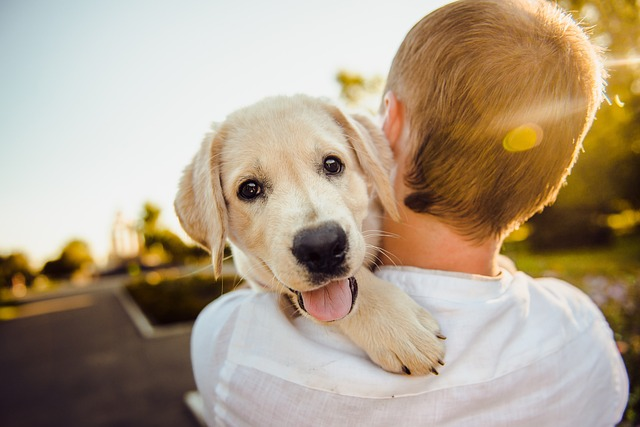- Personal Injury Claims
- Accidents
- Road Traffic Accident Claims
- Accidents At Work Claims
- Holiday Accidents and Illnesses Abroad Claims
- Fatal Accident Claims
- Accidents Public Place Claims
- Injuries
- Eye Injury Compensation Claims
- Poisoning Claims
- Serious Injury Claims
- Sports Injury Claims
- Upper Body Injuries Claims
- Arm and Elbow Injury Compensation Claims
- Hand Injury Claims
- Chest Injury Compensation Claims
- Neck Injury Compensation Claims
- Collarbone Injury Compensation Claims
- Cheekbone Injury Compensation Claims
- Eye Injury Claims
- Shoulder Injury Claims
- Fractured Sternum Compensation Claims
- Spinal Injuries Claims
- Brain Injury Compensation Solicitors
- Compensation for Scarring Claims
- Dislocated Injury Compensation
- Amputation Claims
- Dental Claims
- Horse Riding Accident Compensation
- Personal Injury Lower Body Injuries
- Asbestos Lawyers
- Abuse Lawyers
- Other Injury Claims
- Disputes
- Alternative Dispute Resolution
- General Disputes
- Litigation
- Defamation
- Litigation Funding
- Other Dispute Resolution Services
- Court Actions
- Professional Negligence
- Professional Negligence Claims Against Surveyors
- Professional Negligence Claims Against Architects
- Professional Negligence Claims Against Accountants
- Professional Negligence Claims Against Solicitors
- Professional Negligence Claims Against Financial Advisers IFAS
- Professional Negligence Claims Against Banks
- Clinical Negligence Claims
- Group Actions
- Property & Conveyancing
- Conveyancing Services – Scotland
- Commercial Property Services – Scotland
- Other Property Services Scotland
-
- Family Law
- Immigration Services
- Visas
- Adult Naturalisation Application
- Child Registration Application
- Private Life Application for Adults
- Private Life Application for Children
- Long Residence Application
- Surinder Singh
- Administrative Review
- Fresh Claims for Asylum
- Naturalisation Application
- Stateless Persons
- Travel Documents
- Pre Action Protocol Letter
- Judicial Review
- Immigration Application Review
- Brexit Immigration Advice: Services in Scotland
- Business Immigration
-
- Wills,Trusts & Estates
- Probate & Executry Services
- Business Services
- Careers
What happens to pets in divorce?
March 13, 2019 General
Pets and divorce
With just short of half of the entire population owning a pet, their beloved presence has increasingly become a recurring source of contention in divorce proceedings.
Within this blog we will discuss the following :
While this may at first seem like an ulterior and unnecessary consideration when dealing with the crucial issue of couple’s lives and often too the future of their children’s, it has been consistently found that parties wishing to separate place just as much importance on the animal’s welfare prospects and how this will be handled in the new family life and living arrangements.
Pets can often be seen to one of the few remaining bridges of common interest and agreement estranged couples still hold.
However, when relations finally break down beyond any real prospect of repair and divorce proceedings loom, the much-loved family pet often finds itself in no-man’s land with both sides vying for pet ownership.
However, when this unfortunate circumstance eventually transpires, how does the law deal with the future of couple’s lives while considering the emotional attachment to their pet?
The truth is, the law here in Scotland isn’t actually that clear on the matter. It seems that our dispassionate and often archaic legal system has yet to encounter a sufficient argument in favour of considering the welfare of our pets custody in divorce cases.
In a legal sense, pets are simply the personal property of their owners. The way law deals with matrimonial property in divorce proceedings is to divide it or its value proportionately between each party. These rules are inevitably the result of the well-established traditional conception of marital separations which more often concern disputes over jointly owned possessions.
However, referring to pets in the same bracket as things like furniture feels cold and owners clearly see them in a more emotional light.
This problem remains relatively below the surface but with the increase in younger people opting to buy a pet animal in lieu of having children, the prospect of the issue of the effect of this on divorce will undoubtedly become a growing area of dispute for which the law must sufficiently develop to cater for.
Most of the uncertainty over the law’s ability to deal with this issue is over whether pets are within the scope of the matrimonial property the courts most commonly are familiar with.
Even those who argue pets do indeed fall into this classification, will still recognise that the animal’s situation cannot be decided in isolation rather that it or its value will be taken as part of the bigger picture of all jointly owned property.
Family Pets
The court can, however, find on the basis of fact that one party is the legal owner, if, for example, they had originally paid for it. Although ownership appears superficially to be the critical issue in this problem, the side effects can extend further.
Some divorcing couples, particularly when children are involved, will concede that the pet should remain wherever the kids go. However, whatever the animal’s destination creates other significant problems.
Pets are by no means cheap, the cost involved in feeding, vet bills, pet insurance and maintaining their wellbeing can be significant especially for one party to deal with so they must be financially stable to protect the pet’s welfare. The court can also calculate maintenance costs for pets and consider this when determining income needs as part of the overall financial settlement.
This may result in an additional area of contention over the matter in that should whoever gets the pet have to solely pay the cost of having it?
Additionally, pets commonly require to be exercised or be under regular supervision. Since recently divorced parties are usually alone, they do not have another to share the burden of this commitment as they had before.
It may be appropriate for their ex-partner to assume a degree of responsibility. However, since the law does not clearly have power nor desire to impose any sort of pet arrangements, it would be more appropriate that couples resolve this problem themselves through alternative means and come to an amicable agreement.
Through other processes used to achieve resolutions in divorce such as mediation, couples are allowed to civilly conclude agreements without the hostile baggage associated with court proceedings. Here, the pet’s best interests would be key.
This gives the opportunity for sensible discussions about which party has the greater prospect of caring for the animal and whether each should take a proportionate share of the cost of its care and maintenance costs.
Furthermore, divorcing parties could opt to compromise in agreeing that the animal should spend an equal time between each of their homes, this does not only keep each side happy but creates a greater chance that their relations suffer no further deterioration. The joint ownership approach is rooted in common sense and should be the first avenue divorcing couples go down rather than the ill-prepared court system.
Since this issue is inevitably going to become more and more an area of contention with the increasing roles pets play in our lives, it is clear that the law must reform in preparation for the future. Other countries have indeed anticipated this need and have subsequently introduced new laws to cater for it.
Just this year, legislators in California passed a bill that conferred on judges the power to consider the care of divorcing couple’s pets when deciding on a separation ruling. This means that an important distinction between pets and objects like furniture can now be made and allows for the imposition of shared joint custody arrangements between either party.
This is a progressive development in a growing area of concern and should be taken as inspiration for reform for our own law-makers.
Although many people who do not own one struggle to understand the extent to which pets fulfil such an emotional and physical role in families’ lives, their importance cannot be understated. It is clear that our law, as it stands is critically ill-prepared to deal with the issue of pets in divorce cases. The current cold and dispassionate approach must be departed from. Given this, pet disputes arising on a separation can be difficult to resolve.
The time has come for the law to more accurately reflect society’s beloved relationship with the animals they hold so dear. If you find yourself in a dilemma with an ex partner over the family pet our can help today.
Contact Us
Speak to one of our experience legal team, and get responsive, clear, and straightforward legal advice and support.


















